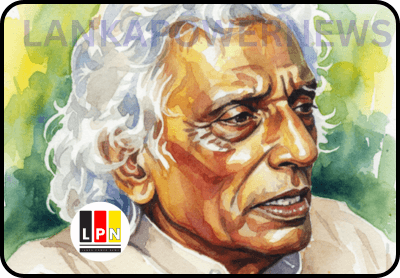Abortion in Sri Lanka..!
Case for decriminalising Abortion in Sri Lanka: A Human Rights, Public Health, and Socioeconomic Perspective

Sri Lanka’s strict abortion laws, inherited from colonial rule and reinforced by religious conservatism, continue to deny women their reproductive rights.
Despite overwhelming medical, social, and economic evidence supporting safe and legal abortion, successive governments have prioritized appeasing religious leaders over addressing pressing human rights and public health concerns.
The criminalisation of abortion disproportionately harms poor women, deepens cycles of poverty, and forces many into life-threatening procedures.
A comprehensive approach to reproductive health which includes access to education, contraception, safe abortion, and post-abortion care is essential to achieving gender equality and social justice. Legalising abortion is not just a medical necessity but a fundamental human rights issue. It is time for Sri Lanka to adopt a progressive legal framework that prioritises the well-being, dignity, and autonomy of its women.
1. Reproductive Health and Justice as a Human Right
Reproductive health is broadly defined as the right of individuals to make informed decisions about their sexual and reproductive lives, including access to contraception, maternal healthcare, and safe abortion services. The United Nations (UN) and the World Health Organisation (WHO) recognize reproductive rights as essential to women’s health, well-being, and equality.
Reproductive justice goes beyond healthcare; it ensures that women regardless of economic background, religion, or social status have the ability to make choices about their own bodies without discrimination or coercion.
In Sri Lanka, restrictive abortion laws violate this principle by denying women control over their reproductive lives and forcing many into unsafe, illegal procedures.

image source_https://mawbima.lk/wp-content/uploads/2023/02/Recovered-Recovered-Recovered-77-768×576.gif
2. The Colonial and Religious Roots of Abortion Laws in Sri Lanka
Sri Lankas abortion laws are a product of 19th-century British colonial rule, which criminalised abortion under all circumstances except to save a mothers life. While Britain and many other former colonies have since liberalised their abortion policies, Sri Lanka has failed to reform its outdated legal framework.
Religious institutions, including Buddhist, Hindu, Muslim, and Christian groups, exert significant influence over the state, often dictating public policy on reproductive health.
Successive governments have been reluctant to challenge religious opposition to abortion, fearing backlash from conservative groups. As a result, Sri Lankan leaders have prioritised religious traditions over scientific evidence and human rights, leaving women without essential reproductive healthcare.
3. The Public Health Crisis of Unsafe Abortions
Restrictive abortion laws do not stop abortions. They only make them dangerous. Thousands of Sri Lankan women undergo illegal abortions every year, often in unsafe conditions. The WHO identifies unsafe abortion as a leading cause of maternal mortality worldwide. In Sri Lanka, many women suffer severe complications, including:
Haemorrhages and infections that require emergency medical intervention
infertility caused by botched procedures
Psychological trauma due to lack of post-abortion care and social stigma
It is well known the long term mental health impact on abortion, including psychological distress, grief and post traumatic stress. Lack of access to psychological supports, counselling and treatment can reduce quality of life, increase morbidity and mortality indirectly.
Death, which could be prevented with safe and legal abortion services, more than 25% maternal mortality is attributed to abortion( Reproductive health, 2016).
The criminalisation of abortion disproportionately harms poor women, who often lack the resources to seek safer, albeit still illegal, medical procedures. Wealthier women, on the other hand, can access private medical care, highlighting the deep inequalities in reproductive healthcare.
4. Lack of Education and Access to Reproductive Healthcare
a) The Role of Comprehensive Sex Education
One of the root causes of unplanned pregnancies in Sri Lanka is the lack of comprehensive sex education. Many young people, including urban areas, receive little to no formal education on reproductive health, contraception, and pregnancy prevention. Social stigma, self censorship, and religious opposition further limit discussions about sexual health, leaving many women unaware of their reproductive rights and options.
b) Barriers to Contraception and Family Planning
Access to contraception is essential to preventing unintended pregnancies, yet many Sri Lankan women , especially those in low-income and rural communities struggle to obtain contraceptives due to:
Financial constraints, currently a major concern.
Social stigma against birth control
Limited healthcare infrastructure in rural areas
Lack of awareness due to inadequate sex education
Changing social perceptions on sexual behaviours for example, premarital sex.
Without proper education and access to contraception, unplanned pregnancies become more common, increasing the demand for abortions, yet the law offers no safe solution for women in need.
5. The Socioeconomic Burden of Unwanted Pregnancies
a) Poverty and Economic Hardship
For women living in poverty, an unplanned pregnancy can be financially devastating. Many cannot afford the costs of prenatal care, childbirth, and raising a child. Women who become pregnant unexpectedly may be forced to leave their jobs, further reducing their income and pushing them deeper into economic hardship.
b) Impact on Education and Employment
Young girls who become pregnant often drop out of school, limiting their educational and career opportunities. This traps them in a cycle of poverty, where they struggle to support themselves and their children. Legal abortion would allow women and girls greater control over their futures, reducing long-term economic disparities.
c) Impact on Children and Society
Children born from unwanted pregnancies are more likely to experience: poverty and malnutrition due to financial instability, neglect or abuse, particularly in cases where the mother is unable or unwilling to care for the child, lack of educational opportunities, limiting their future prospects.
Legalising abortion would help prevent these socioeconomic challenges and allow families to make decisions based on their ability to provide a stable and healthy environment for children.
6. Women’s Right to Bodily Autonomy and the Failure of Successive Governments
Denying women the right to choose abortion is a violation of bodily autonomy .”the fundamental principle that individuals have control over their own bodies. Sri Lanka’s successive governments have consistently placed religious traditions above women’s rights, failing to recognise reproductive freedom as a human right.
Despite periodic discussions on abortion law reforms particularly in cases of rape, incest, and fetal abnormalities , no government has taken concrete action due to pressure from religious institutions. This inaction has left women with no legal recourse, forcing them into unsafe and life-threatening situations. Lobbying by non governmental organisations were met with resistance and demonising NGOs instead listening and acting on the progressive steps proposed them since 1990’s.
7. Reducing the Burden on the Healthcare System
Unsafe abortions place an unnecessary burden on Sri Lanka’s already overstretched public healthcare system. Women suffering from complications due to illegal abortions require emergency care, diverting resources from other critical medical needs. Legalising abortion and ensuring safe, regulated procedures would:
Reduce maternal mortality and morbidity
Free up healthcare resources for other medical services
Improve post-abortion care, ensuring women receive proper medical attention without stigma or discrimination
8. Aligning with Global Human Rights Standards

Sri Lanka’s abortion laws are among the most restrictive in the world. International human rights organisations, including the United Nations (UN) and World Health Organisation (WHO), have urged countries to reform their abortion laws to protect women’s rights and health. Even Catholic-majority nations such as Ireland and Argentina have recognised the necessity of legal abortion and reformed their laws. Sri Lanka must follow suit if it hopes to uphold international human rights standards and protect its citizens. Interestingly, Sri Lanka is the signatory on more than half dozen UN covenants that protects the rights of women and children. However, these matters were not translated to ground realities. Further, Governments has had no hesitation to pass laws based on UN convention on drugs and crime, which has killed thousands despite its persistent negative outcomes.
Conclusion
Sri Lanka’s criminalisation of abortion is a product of colonial-era laws and religious control over the state. Successive governments have prioritised religious traditions over human rights, public health, and socioeconomic stability. Restrictive abortion laws disproportionately harm poor women, forcing them into unsafe procedures or lifelong economic struggles.
A comprehensive reproductive healthcare framework which includes legal abortion, access to contraception, and reproductive education essential to protecting women’s health and rights.
Legalising or decriminalising abortion would empower women, reduce maternal mortality, and break cycles of poverty. It is time for Sri Lanka to recognize that reproductive rights are human rights. A progressive, evidence-based approach to abortion is not just a medical necessity , it is a moral imperative.
Dr. Herath Dhammika MDpsy, FRANZCP
Consultant Psychiatrist
Queensland
Australia
( The views expressed are personal and may or may not reflect the organizations that I am professionally associated with, including Queensland Health, professional bodies in Australia, Canada , Sri Lanka and elsewhere. Dr. Herath Dhammika is a dual Australian and Sri Lankan citizen and have right to practice medicine in Sri Lanka and Australia)







